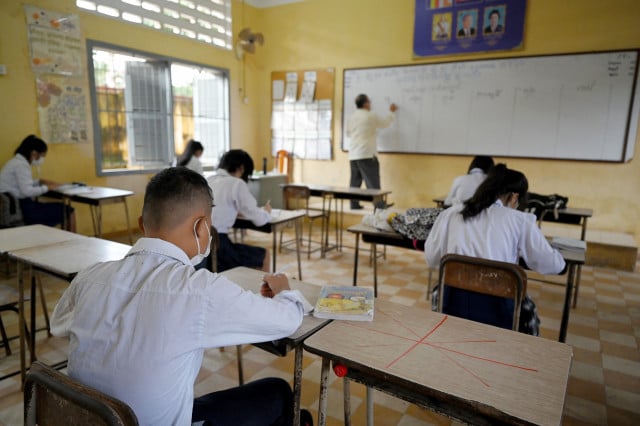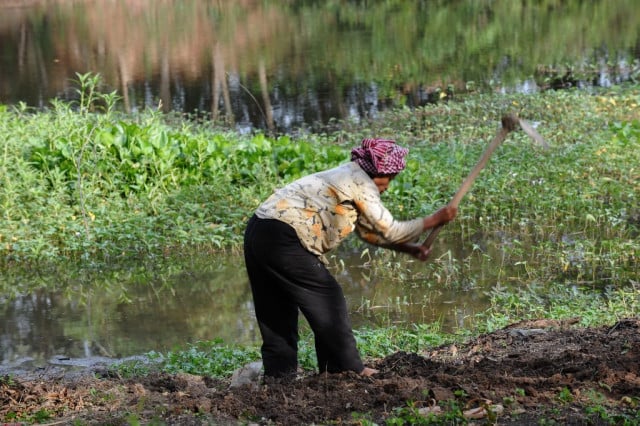Millions to be Spent on Anti-Flooding Measures

- By Ou Sokmean
- April 11, 2024 10:55 AM
PHNOM PENH – The government is implementing a $300 million project to tackle rainy season flooding in Phnom Penh.
Prime Minister Hun Manet announced the figure during the annual convention of the Ministry of Water Resources and Meteorology on Apr. 10.
Heavy rain has caused severe flooding in the capital in recent years. Its outskirts and parts of Kandal province have also been flooded by water coming from the Kampong Speu province via Prek Tnoat River.
Hun Manet said that the five-year plan focuses on two fronts: building more drainage in the capital and preventing more water flowing into the city.
Fixing the city drainage will be carried out by Phnom Penh Administration and the Department of Public Works and Transport. This work focuses on building more canals, constructing a bigger drainage system, building more water pumping stations and increasing the capacity of pumping stations.
The plan was being implemented gradually along with the study on impacts, he said.
The Ministry of Water Resources will work on flood mitigation through Prek Tnaot River which run through western Phnom Penh so that the water will be redirected to other areas.
Hun Manet said that every rainy season there are large amounts of water flowing from Oral Mountain into Prek Tnaot River and Phnom Penh.
This project aims to release pressure on Prek Tnaot by diverting water to Tonle Bati area, Takeo province, Kandal, Kampong Speu and to Bassac River.
The authorities are restoring the canal system from Roleang Chrey Dam in Kampong Speu to Prek Ho-Takhmao. The system is more than 260km long and consists of ten rivers and canals. Four more pumping stations will be built to divert as much water as possible.
At the same, the irrigation system at the southwestern part of Phnom Penh and the flood prevention project on Prek Tnaot River will be upgraded to redirect water.
The PM said that the goal is to make sure that there is not too much water in the rainy season and lack of water in the dry season.
“We will gradually try to solve this problem from what we have done for decades to ensure better water management,” he said.
Hun Manet also instructed the ministry to ensure water supplies for farms and daily use for coming years as the world is forecast to have heat waves between 2023 and 2027 due to rising greenhouse gases and the El Nino effect.
Such phenomena would cause severe storms, droughts and changing weather patterns with some places getting too much rain and some becoming drier.
Torn Chanritheara contributed to the story.















